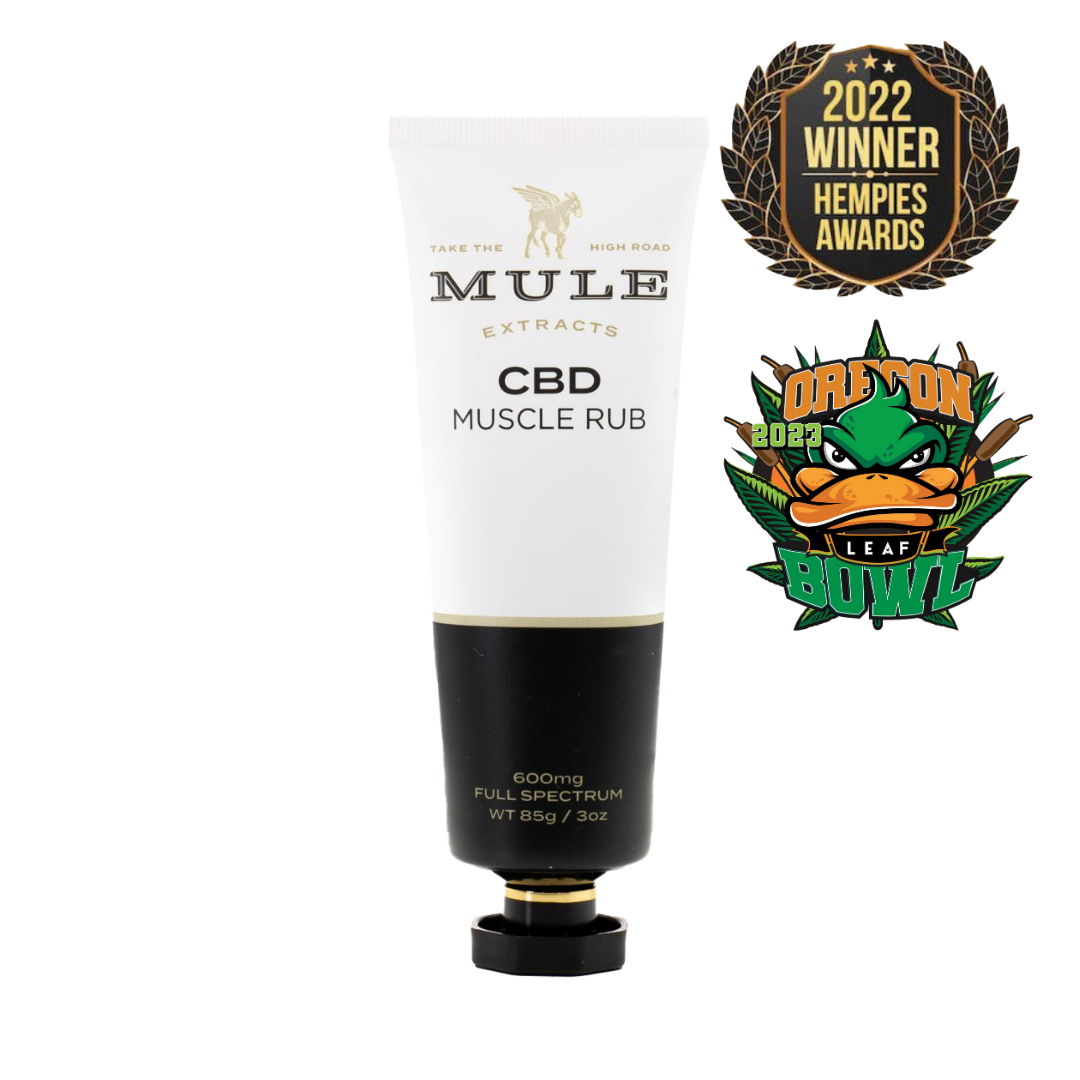CBD 101
WHAT IS CBD?
CBD, short for cannabidiol, is one of the most commonly found compounds in the cannabis plant. The compounds we can find in cannabis are known as “cannabinoids”, with the two most popular being CBD and THC. When we refer to cannabis, there are two kinds of plants to keep in mind: Marijuana, which is classified as a cannabis plant with over 0.3% THC and Hemp, which contains less than 0.3% THC. THC, or tetrahydrocannabinol, is the most prominent psychoactive compound found in the cannabis plant, known for creating “a high.” CBD, on the other hand, is non-psychoactive. Although CBD is technically the same compound whether it's extracted from hemp or marijuana, all of our CBD at Mule is 100% hemp-derived due to its concentrated levels of the cannabinoids we choose to use in our products: CBD, CBG, CBN, and CBC.

WHY USE CBD?
There is a naturally occurring network within the human body called the endocannabinoid system and it is full of cannabinoid receptors that connect directly to your brain. While cannabinoids, such as CBD, are found within the cannabis plant, a similar compound called “endocannabinoids” are naturally produced by our bodies whether or not we partake in the consumption of cannabis. These are what keep our internal functions running smoothly and our body produces them as needed. Our endocannabinoid systems, or ESCs, utilize the partnership between our naturally occurring cannabinoids and receptors to balance other systems out within our bodies. This could look like pain management, mood regulation, or the stimulation of appetite. While experts are still trying to fully understand the ECS and all that it can affect, we do know that it plays a role in sleep, mood, metabolism, memory, reproduction and fertility, motor control, and nerve function.
Your body has two kinds of cannabinoid receptors: CB1 receptors, which work with your central nervous system, and CB2 receptors, which work with the peripheral nervous system. When your body is experiencing a problem, your brain sends endocannabinoids to bind to your receptors in an attempt to restore balance. Which receptor they target will depend on the issue at hand. For example, some endocannabinoids might target the CB1 receptors in a spinal nerve to ease physical discomfort, while others might bind to a CB2 receptor within your immune cells to signal that your body is experiencing inflammation.
The use of CBD, especially when used consistently, assists the body in restoring balance within the endocannabinoid system, which when functioning properly can improve sleep patterns, assist with appetite or metabolic issues, improve your mood, and so much more. Studies also show that cannabinoids provide antioxidant protection for our cells, tissues, and organ systems. When our body’s cannabinoid production is slow, CBD supplements can step in as their chemical structure is almost identical to our body’s natural compounds. Using CBD daily ensures that cannabinoid deficiencies are taken care of and assists with keeping your internal systems running smoothly.

